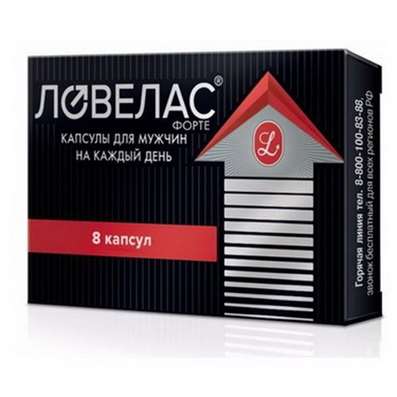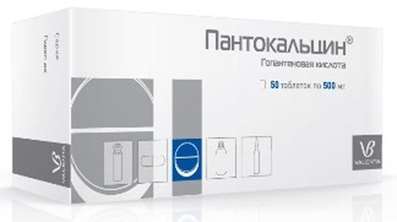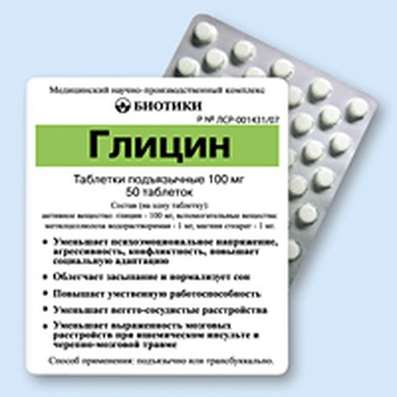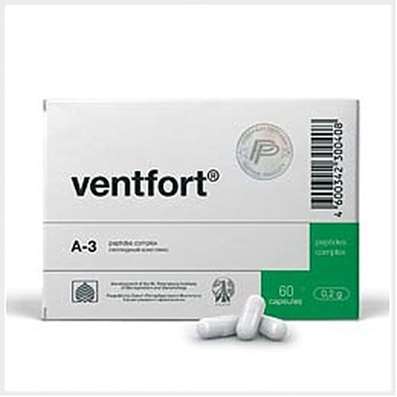The fight against doping in Russian sports
17 Oct 2016
Today, more and more people in Russia comes to realize that the fight against doping - a fight for the prestige of our country, for its reputation. Doping scandals involving Russian athletes have increasingly become the subject of discussion not only of journalists and sports officials, but also scientists and politicians.
One of the most famous was the trial after the Goodwill Games in Brisbane (Australia, 2001) associated with the use of a prohibited Diuretic (Furosemide) gymnast Alina Kabaeva and Irina Tschaschina. At the Olympics in Salt Lake City in 2002 in a scandal with Erythropoietin - a hormone that stimulates the production of red blood cells - were involved skiers Larisa Lazutina and Olga Danilova. Putter Irina Korzhanenko – anti-heroine Olympic Games in Athens 2004 was disqualified for life, as caught on doping for the second time. In Turin, in the center of the 2006 doping scandal was our biathlete Olga Pyleva, devoid of "silver."
A group of deputies of the Committee for Physical Culture and Sports, headed by Vice-Speaker of the House Svetlana Zhurova introduced to the State Duma a bill that introduces the concept of "doping" and aims to fight against its use in sports.
The bill "On Amendments to the Federal Law" On physical culture and sports in Russia "says that under the doping refers to not only the prohibited substances and methods, but also the actions that are made with them and with the samples obtained at doping control, the have to use, the appointment of an athlete. It is also spread, falsifying doping control, refusal or failure to provide samples, and violation of rules on athlete availability for a Sample.
The State Duma also proposes to consolidate the legal status of the national anti-doping organization - a non-profit organization, which will deal with doping control in Russia, its development and maintenance. The draft law states that the governing bodies of the organizations should participate representatives of the state and major sports organizations in Russia.
The powers of the National Anti-Doping Organization should be of the bill, in particular, attributed the formation of the list of athletes subject to doping control, the organization of biological sampling and delivery to the anti-doping laboratory, test results management process, as well as the development of educational programs related to counter the use of doping agents and methods in sport.
The bill also requires all-Russian sports federations to impose sanctions - up to disqualification against those who violate the anti-doping rules.
Proposed changes to the law also defines measures to combat doping. In particular, such measures include members of the anti-doping propaganda in the media, establishment of responsibility for violation of anti-doping rules, and for the falsification of medicines and dietary supplements by including doping agents in their composition, as well as for the promotion or advertising of illegal drugs.
According to Vitaly Mutko, the Ministry of Sports should participate in the work of the main body for the anti-doping fight in the country, since it is the main financier in anti-doping. In 2008, the activities of RusADA been allocated 32 mln. Rubles in 2009 planning increase this amount three times. On the equipment of the Russian anti-doping laboratory in 2008 transferred 53 million rubles, in 2009 -. 70 million.
Another very important point is the coordination of anti-doping fight. To date, there are a few of its elements - RusADA, the Russian anti-doping laboratory, Anti-Doping Commission in sports federations, but there is no common communication center. That this should be the center and the Ministry of Sports.
Russian Anti-Doping Agency (RusADA), World Anti-Doping Agency (WADA) and the Anti-Doping Organisation of Norway announced the signing of a tripartite agreement, which is intended to consolidate the efforts in the fight against doping in sport.
The tripartite agreement was signed on the initiative of WADA, which is interested in strengthening the work in Russia and the exchange of experiences between countries. After lengthy negotiations, Russian officials have come to the conclusion that the Anti-Doping Organisation in Norway is considered to be one of the strongest in Europe, and cooperation with it has much to offer such a young organization like RusADA. The agreement with the Norwegian Anti-Doping Organization also has an important image component. By signing an agreement with the largest anti-doping organization in Europe, Russia shows the world that is open to cooperation, that the fight against doping in Russia is actually carried out.
At the meeting of the Presidium of the Presidential Council on the Development of Physical Culture and Sports, Sports, preparation and holding of the XXII Olympic Winter Games and XI Paralympic Winter Games 2014 in Sochi, Prime Minister Vladimir Putin said: "We must create all conditions to introduce a mechanism of state control (with doping), and we have to act vigorously. If you want, and let's discuss the issues related to the tightening of liability. "
He added that the national sport has always developed in the tradition of fair and honest fight, "It has to be in the future, but it is necessary to create all conditions to implement appropriate public control mechanism."
"At the same time, I want to draw attention to the National Olympic Committee, the relevant ministries and departments of the Russian Federation Government, that with all of this we have no right and will not shift responsibility on athletes.
Sports organizers should understand their own responsibility, it is necessary that all our structures, which are engaged in sports, have been created modern, efficient structures that protect the interests of the national sport in the international arena and the interests of the athletes, "- said Putin.
" Putin instructed the Ministry of Sports Russia to carry out, since 2009, the payment of the annual Russian Federation's contribution to the Fund for the Elimination of Doping in Sport in the amount of 500 thousand. Euro, and in conjunction with the Russian Ministry of Finance in the formation of the draft federal budget for the next fiscal year and planning period include the budget appropriation for the payment of such contributions.
One of the effective ways to deploy an anti-doping policy is the involvement of the well-known athletes.
24-25 June 2008 in Paris under the auspices of the Director General of UNESCO, Koïchiro Matsuura, held a meeting with the heads of the organization President of the World Anti-Doping Agency (WADA), John Fahey, WADA director general David Houman and specially invited to participate in the talks the head of Rossport, a member of the Foundation Board and Chairman Commission WADA athlete, double Olympic champion Vyacheslav Fetisov.
Vyacheslav Fetisov proposed to use for the purpose of wider dissemination of the principles and objectives of the anti-doping fight such an important resource as the authority of the "UNESCO Champions for Sport." These honorary titles are such famous athletes as Ukrainian boxers brothers Vitali and Wladimir Klitschko, Soviet and Ukrainian athlete Sergey Bubka, French judoist David Douillet, Russian hockey player Vyacheslav Fetisov, German racing driver Michael Schumacher, Belgian tennis player Justine Henin. Famous athletes, UNESCO ambassadors in the world promoting the organization's objectives, among them - the sport as a source of physical and moral health of future generations.
In addition to the anti-doping propaganda may be involved athletes disqualified for doping, showing by example the harmfulness of doping, the certainty of punishment. In this case, sports federations are willing to play a supporting role and provide all necessary assistance.
In order to effectively fight against doping in sport, you need to understand the reasons for the use of these drugs by athletes. The main causes of doping in sport is an ill-conceived system of payment, the coaching careerism and particularly national sports organizations, because of which the athlete feels socially vulnerable.
It should be noted that the problem of doping in sport is characterized by a purely human factors, a moral component. That's why this fight is very tough measures are needed. Now actively discussed the possibility of a lifetime ban for a first anti-doping rule violation case. This may be the least serious lever than the possible criminal responsibility at the national level.
At the same time we discussed the question of legal liability for the use of performance-enhancing drugs. The appearance of the Code of Administrative Offences (CAO) of the doping, according to lawmakers, will make possible the following sanctions - warning, administrative penalty, deprivation of a professional license, in exceptional cases - the arrest.
Thus, we can not say that the sports officials, politicians and the public of the country do not lead the fight against doping. But this struggle is not being effective enough.
In 2007, for the use of illicit drugs were disqualified skier Sergei Shiryaev, bronze medalist of the World Cup 2001 in the hammer throw Ilya Konovalov, repeated winner of European and World Championships in swimming Anatoly Polyakov and his teammate champion and record holder Russian Anastasia Ivanenko.
During the World Rowing Championships in Munich were disqualified six athletes Russian (Denis Moiseev, Vladimir Varfolomeyev, Svetlana Fedorova, Alexander Litvinichev, Evgeny Luzyanin and Ivan Podshivalov). Thus, the international federation of rowing for violations of the WADA Code in fact sacked domestic federation for the sport before the Olympics in Beijing.
A record year for the disqualification of the leading national athletes was the year 2008. There were about two dozen. The most scandalous was the case on seven disqualified athlete - Yelena Soboleva (800 and 1500), Svetlana Cherkasova (800m), Yulia Fomenko (1500), Darya Pishchalnikova (ROM), Olga Yegorova (5000m), Gulnara Hanafeevoy (hammer) and Tatyana Tomashova ( 1500), who were accused of substitution of doping - tests.
2009 also was not without tremendous doping scandals. For the use of doping in the training process we have been disqualified several leading 'shooting skiers "- Catherine St. George, Albina Akhatova and Dmitri Yaroshenko. At the EPO, and caught two Russian biathlete racers Veronika and Andrey Timofeev Prokunin who were disqualified RRF (Russian Biathlon Union). The skis were caught for doping Olympic champions Julia Chepalova and Yevgeny Dementiev, as well as members of the national team Natalia Matveeva and Nina Rysin.
The fact of the disqualification of such a large number of famous Russian athletes is not unusual. Athletes are not robots, but living people. And if they are "successful" previously used in the training process of doping, then give it up it was not easy.
So can athletes and athletes disqualified by the International Olympic Committee have public support? It would seem, definitely not! But here, as in so many, all slightly different. Here is an example. Before the Olympics in Turin, the federal TV channel invited to the studio unqualified IOC champion Irina Korzhanenko Athens, accompanied by her appearance on the stage with the phrase: "The gold medal was never given." Viewers gave it clear that the athlete continues to consider herself innocent. Actually, this is indirectly confirmed by the very Korzhanenko, saying during transmission: "If it had a chance to go all the way again, all would have done the same." The vast majority of us had still not know whether she is guilty to the crime itself, or it has substituted imperfect at that time the domestic anti-doping laboratory.
Or another case. Genuine surprise many football fans, coaches and specialists led to an invitation for comment on central television European Championship matches Yegor Titov, the disqualified player. In the air hung the question: who is to blame for the fact that Titov caught? He himself, in an interview given to the newspaper "Soviet Sport", said: "My" killer "- Dr. Shchukin." However, he accused the doctor a few days later in the same newspaper said: "The truth about the Titov’s case we hardly ever know."
Generally, sympathy for doping athletes consume able to hurt them as much criticism. For example, at the Olympics in Salt Lake City after the disqualification of our race skiers Larisa Lazutina and Olga Danilova, produced at a time and in such a way that our relay team, is the favorite in any case, could not even start, Russia is literally flooded with aggressive patriotic sympathy for the athletes. On this wave skiers, spurred by an ambitious attorney, tried to obtain a review of the sanctions in the international court. The result is an increase in the period of ineligibility.
It is important to understand that doping and sport affect the image of the state as anything else. At the same time, to improve the effectiveness of the fight against doping requires a reorientation of public opinion. In Russia there is no: the press instead of a sober assessment of the situation artificially inflates the scandals in society rooted sympathy for delinquent idols, disqualification is considered a huge injustice.

 Cart
Cart





